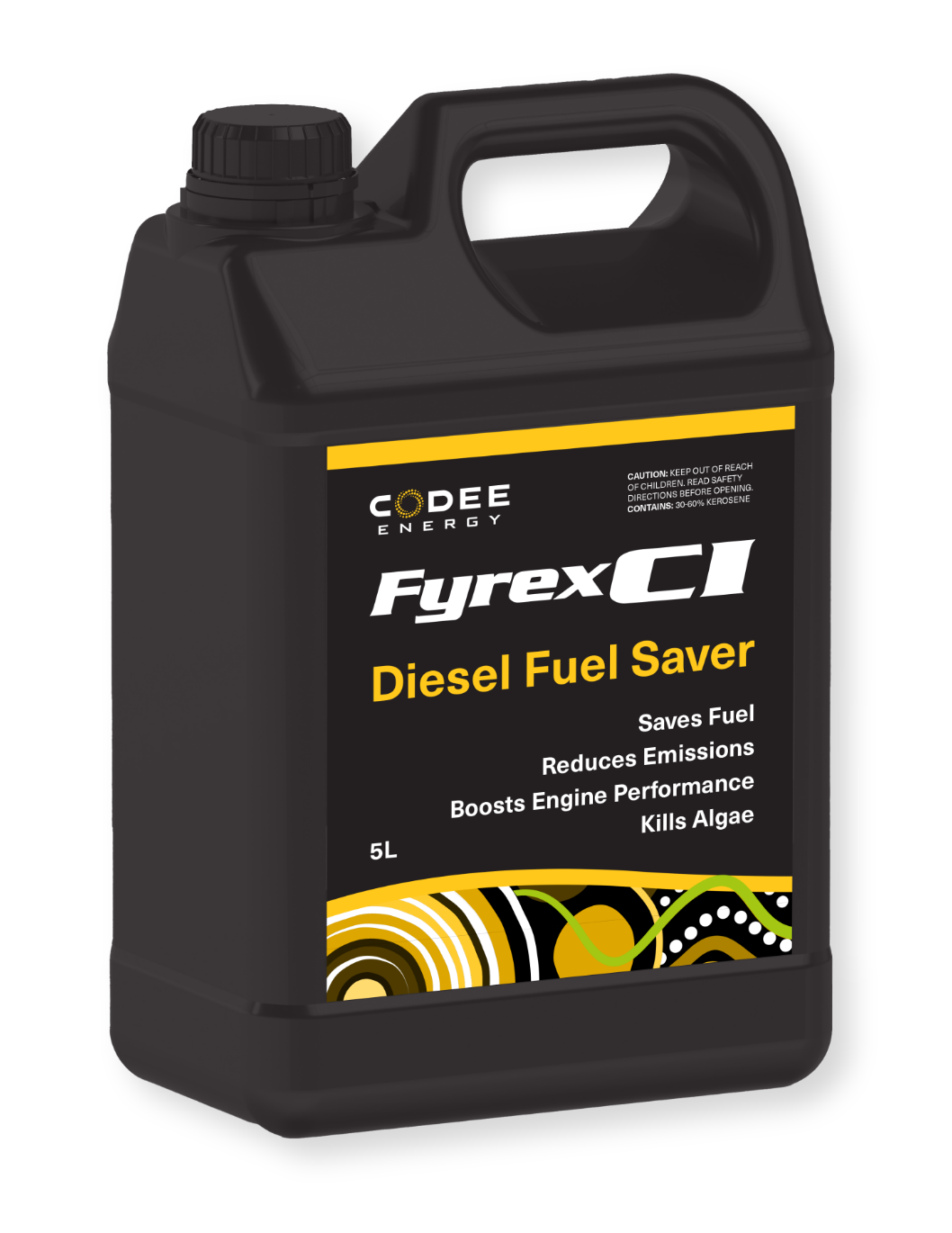
As an Australian-made product already known for its fuel economy benefits, Fyrex CI is now officially recognised by the Australian Government Clean Energy Regulator for its proven results in fuel economy, carbon reduction and tailpipe emissions.
FIMA has worked in conjunction with the Clean Energy Regulator to have the first emissions avoidance project for the transport industry approved in Australia while still using current spec diesel. Diesel users, particularly those in the Freight and Logistics industry, can now generate ACCU’s by simply running Fyrex CI Premium Diesel Additive in your fleet.

.svg)

Diesel engines' efficiency and performance depend on the fuel's combustibility, measured by its Cetane rating. A higher rating means better ignition quality, faster burn rate, improved engine performance, increased power, lower fuel consumption, and reduced emissions. Fyrex CI is a diesel fuel with an increased Cetane rating, resulting in enhanced fuel combustion without adverse effects on equipment or the environment. Fyrex CI is a viable and sustainable option for those looking to optimise their engine performance and reduce their carbon footprint while benefiting from improved efficiency, reduced emissions, and better engine performance.
Cleaning Detergent: To create and maintain optimum performance clean flowing unimpeded fuel lines and injectors are necessary. This is achieved by adding a detergent chemical to dissolve build up in fuel lines and injector nozzles which typically reduce the potential efficiency of fuel combustibility.
An upper-cylinder lubricant reduces equipment wear rates and improves mechanical tolerance to degradation, counteracting the effect of low and zero sulphur levels in modern diesel fuel.
Reduced fuel consumption
Increased fuel power
Improved fuel system residual flow
Enhanced fuel stability
Maximum corrosion resistance
Reduced fuel system wear through improved lubrication Improved combustion
Improved combustion emissionsImproved injector cleanliness
Reduced fuel foaming capacityNil biological growth sustainability
Minimised water entrapment
Dose rate 1:4000
Available in 5ltr,10ltr,20ltr,200ltr,1000ltr
Injected fuels form a spray pattern that plays a significant role in the air-fuel mixing process. The surfactant lowers the surface tension of fuel droplets, creating smaller more atomised spray patterns improving air-fuel mixture and a more efficient combustion.
Microbial growth thrives in fuel contaminated with water. These organisms consume the fuel, breaking down its hydrocarbon chains and reducing combustibility. The biocide agent kills and prevents growth of these organisms to ensure the fuel maintains its optimal performance level.
Water causes numerous problems in diesel and diesel storage:
Provides friendly environment for biological attack Corrosion/rust
De-rates Cetane: 1% water = 0.5% Cetane reduction Impedes injection
Demulsification is a chemical process that separates the water and fuel, effectively pushing the water to the bottom of the holding vessel. Water is then pumped or drained from the system. Demulsification is by far the most effective mechanism for long-term water management and the immediate efficiency of combustion.
Provides smoother filling, reduces spillage, and fill times and assists with engine heat dissipation.
-
REDUCED FUEL CONSUMPTION
-
INCREASED FUEL POWER
-
IMPROVED FUEL SYSTEM RESIDUAL FLOW
-
MAXIMUM CORROSION RESISTANCE
-
REDUCED FUEL SYSTEM WEAR
-
IMPROVED COMBUSTION
-
IMPROVED COMBUSTION EMISSIONS
-
IMPROVED INJECTOR CLEANLINESS
-
REDUCED FUEL FOAMING CAPACITY
-
NIL BIOLOGICAL GROWTH SUSTAINABILITY
-
MINIMISED WATER ENTRAPMENT
DOSE RATE 1:4000
AVAILABLE IN: 5L / 10L / 20L / 200L / 1000L

This bar graph illustrates the correlation between diesel consumption (in litres) and the corresponding Australian Carbon Credit Units (ACCUs) earned, along with their monetary value.
The chart emphasizes the scalability of carbon credits earned based on fuel consumption, showing that the more diesel used, the more ACCUs can be claimed, leading to higher financial returns through carbon credit trading.

How many liters of Diesel do
you consume annually?
Your cash fuel savings is expected to be:
